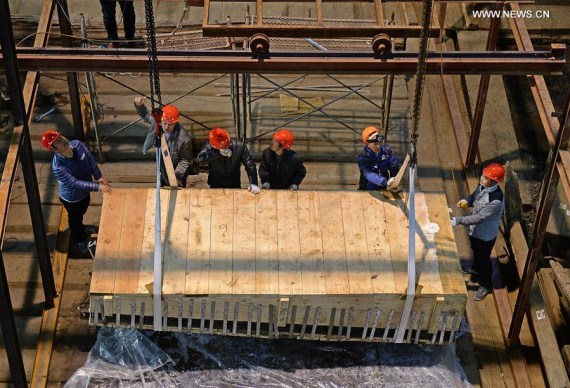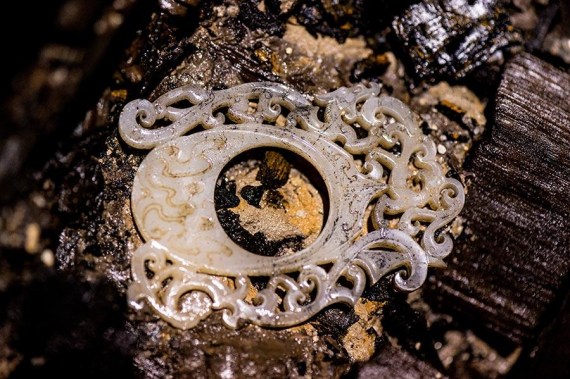
The exciting discoveries in Jiangxi province have told us much about the ancient Chinese but they are not the only excavations that have recently been causing the rewriting of some of the history of ancient China.
Excavations last month of a small Roman cemetery in south London that was in use between the 2nd and 4th centuries have unearthed the remains of two people who were certainly Asian and most probably Chinese.
The skeletons surprised experts who had previously believed the Chinese and Roman civilizations, which were both massively influential at the time, had only minimal contact with one another. Now, the experts are wondering whether the ancient civilizations had more interaction that was previously thought.
While the discovery is fascinating because of what it tells us about ancient China, I was also interested to learn just how cosmopolitan London was, almost 2,000 years ago.
Of the 20 sets of bones unearthed in the cemetery in the capital's Southwark neighborhood, there were four African people in addition to the two Chinese. Previous excavations of other Roman sites in London also suggest it was a very cosmopolitan city and home to one of the most advanced civilizations of the time.
People wanted to live in the Roman Empire's Londinium, as it was known then, because it was a major commercial and bureaucratic center and because they were attracted to its dynamism.
The discoveries made at the Marquis of Haihun tomb in Jiangxi province and in the Roman cemetery in London tell us a lot about the ancient past but, with the realization that the ancients liked alcohol, hot pot, clean air and civilized life in a fast-paced vibrant city, and that they were mobile and interactive, they tell us that our ancestors were actually much the same as we are today.



















































